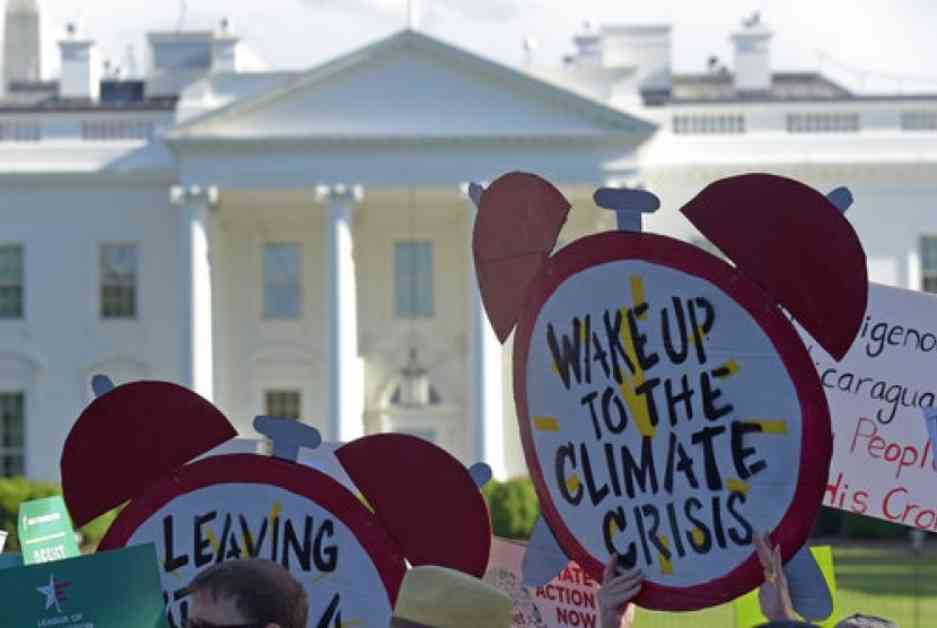President of the United States, Donald Trump, raised eyebrows when he decided to withdraw the country from the Paris Agreement, a crucial pact aimed at addressing the global climate crisis. This move has sparked concerns among experts, with Novita Indri, a Fossil Energy Campaigner at Trend Asia, highlighting the potential setbacks in the worldwide energy transition mission to combat climate change. Not only does the U.S. withdrawal risk hindering international funding efforts due to reduced commitments to assist developing countries like Indonesia, as outlined in the Just Energy Transition Partnership (JETP) agreement, but it also opens doors for alternative and more collaborative leadership opportunities.
Novita emphasized the importance of reconsidering fair cooperation schemes with other nations, including developing countries, to achieve the goals set forth in the Paris Agreement. “The Paris Agreement should not be viewed merely as a document filled with technical language to reduce emissions but as a commitment to saving humanity. The climate crisis is real, and its impacts are already visible,” she stated.
According to an analysis by the World Resources Institute (WRI) in 2023, China, the United States, and India were the top three emitters, contributing approximately 42.6% of global emissions. Novita pointed out that Indonesia does not need to compromise its energy transition efforts despite the changes resulting from the U.S. withdrawal. She expressed concerns regarding the ambiguity surrounding the implementation of JETP funding, which could potentially burden Indonesia with debt-driven schemes.
Challenges and Opportunities in the Face of Climate Crisis
Reflecting on the repercussions of the U.S. departure, Novita stressed that Indonesia should not slow down its energy transition efforts, especially given the imminent climate crisis. She criticized Minister of Energy and Mineral Resources, Bahlil Lahadalia, for suggesting that Indonesia should not rush into energy transition commitments, especially in light of the U.S. withdrawal and the lack of financial aid from JETP. Novita urged for a more science-driven approach and highlighted the need for increased mitigation and adaptation efforts to address Indonesia’s vulnerability to climate-related disasters.
Citing data from the National Disaster Management Agency (BNPB) between January 1st and January 31st, 2025, Novita drew attention to the high incidence of floods, extreme weather events, and landslides that affected over 635,000 individuals in Indonesia. She underscored the close correlation between these disasters and the climate crisis, emphasizing the urgent need for robust energy transition measures to safeguard national resilience.
Pursuing Sustainable Funding for Energy Transition
Novita emphasized the necessity for Indonesia to explore domestic funding sources for energy transition, leveraging readily available resources like coal production revenues. With coal production exceeding 833 million tons in 2024 and projected to surpass 900 million tons in the future, she highlighted the potential for substantial state revenues from increased levies on coal production. Quoting estimates from Sustain, Novita indicated that revenue from enhanced coal production levies, particularly from corporations profiting excessively, could surpass $23.58 billion annually—surpassing the commitments under the JETP agreement.
In a recent statement, the United Nations confirmed the U.S.’s formal notification of its withdrawal from the Paris Climate Agreement, marking a pivotal moment in the global climate action landscape. The move underscores the critical need for enhanced collaboration and collective efforts to address the pressing challenges posed by climate change.
As world leaders navigate the complexities of climate action, it is imperative for nations like Indonesia to embrace sustainable energy transitions, driven by innovative funding models and a strong commitment to environmental stewardship. The path ahead may be challenging, but with strategic planning and unwavering dedication, countries can forge a brighter, greener future for generations to come.














